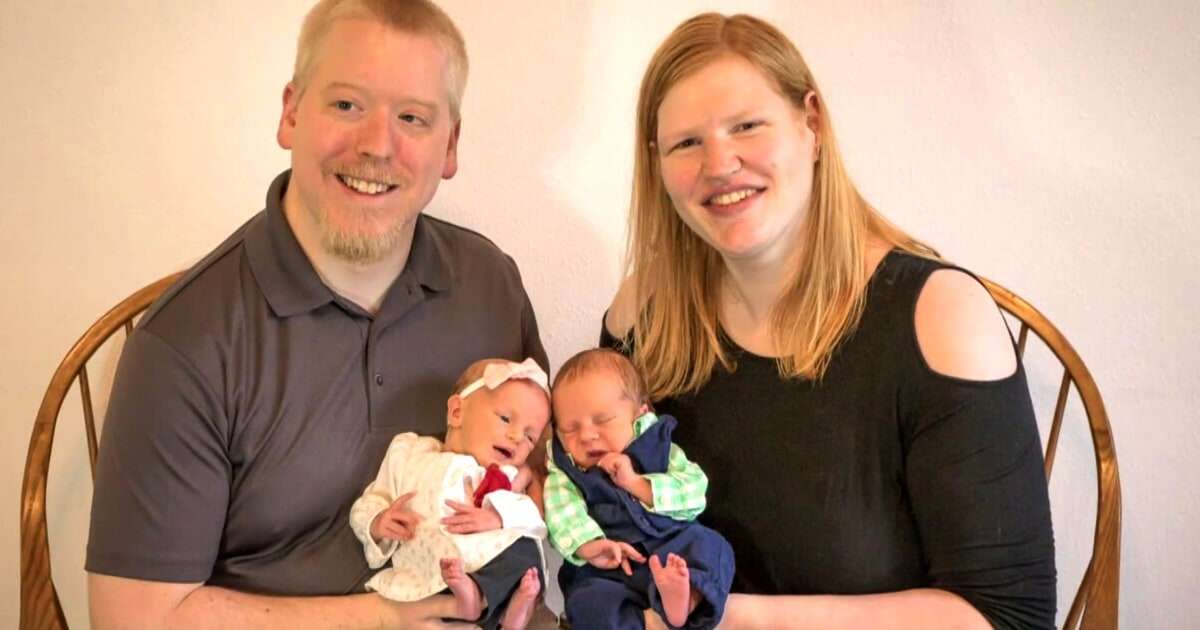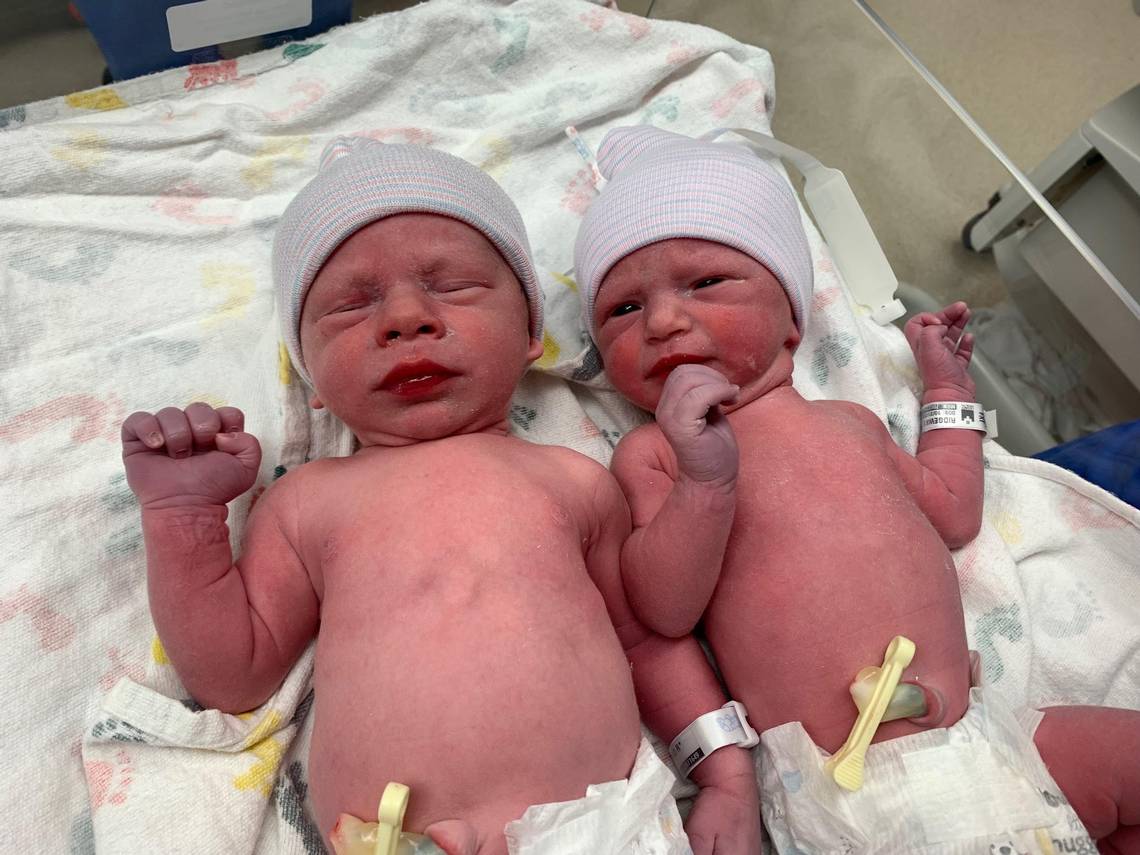
In what some experts consider to be the oldest case of frozen embryos giving rise to a live birth, an Oregon couple welcomed twins from embryos that were frozen 30 years prior.
Twins Philip and Rachel Ridgeway welcomed Lydia and Timothy on October 31 from embryos that were frozen on April 22, 1992.
Donating an embryo is taking it from one person and giving it to another. Sometimes, a procedure known as “embryo freezing” or “cryopreservation” is utilized to preserve and use the embryos. The Cleveland Clinic reports that, as shown in 2016 national data, the live birth rate per transfer for frozen embryos is 49%.
The Ridgeways, who are parents to four additional kids, aged 8, 6, 3, and 1, may have broken a record.
The National Embryo Donation Center assisted Tennessee couple Tina and Ben Gibson in conceiving their daughter Molly from a 27-year-old donated embryo back in 2020. Emma, Molly’s sister, was conceived from a 24-year-old frozen embryo in 2017.
According to Rachel Ridgeway, “We really wanted to locate those embryos who have been waiting for the longest and have been passed over repeatedly.” They reportedly asked, “Who needs to be chosen?”

Philip Ridgeway recalled that he was five years old “when God gave life to these embryos” in reference to the day their children’s embryos were frozen. His wife was three.
He continued, “It’s really mind-blowing to think that God was giving life to these children somewhere else at the same time.
It’s very incredible, according to Rachel Ridgeway, just to think that they were made at that time and had to wait so long for us to be able to raise them.
The couple explained how the siblings were created for the other kids.
According to Philip Ridgeway, “We’ve been extremely open and transparent with them throughout the entire process. They’ve been supporting us and praying with us. They’re also excited and looking forward to seeing us.”
The couple expresses their gratitude for having their family complete. Rachel says, “Extremely blessed—tired, but very blessed. It’s very incredible,

